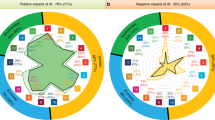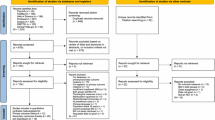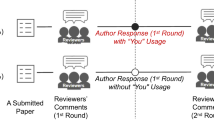Abstract
Objective
To assess how priority setting exercises for nutrition research are considered in publication.
Design
Cross-sectional design.
Settings
First, a citation analysis of priority setting exercises found in nutrition research until 2019 was conducted. The reasons for citation were extracted from the text of citing papers and the reasons were defined as: (i) acting on the research questions identified as priorities, (ii) acknowledging the priority setting exercise, (iii) using the same method, or (iv) previous knowledge to support evidence. Second, a survey with authors of the priority setting exercises was done to understand priority setters’ perspectives on the impact and satisfaction of their work.
Participants
Twenty-one priority setting exercise papers were included. In all, 434 citing papers were found, of which 338 were considered in the citation analysis. A sample of 17 authors representing 13 priority setting exercise papers completed the impact and satisfaction survey.
Results
Half of the priority setting exercise papers were published by 2013. After excluding self-citations (n = 60), the priority setting papers had on average 18 citations. Priority setting exercises had a median of 1 (IQR = 0–1) citing manuscript that acted on the recommendations produced from priority setting exercises. Authors of the priority setting exercises expressed a desire for increased uptake of the results of the priority setting exercises by funding agencies. Key barriers for uptake were identified as challenges in involving stakeholders and the general public for participation in the priority setting exercise.
Conclusions
Priority settings exercises are important efforts to guide nutrition research toward effective allocation of resources. However, there seems to be a limited consideration of these priority setting exercises in research papers.
This is a preview of subscription content, access via your institution
Access options
Subscribe to this journal
Receive 12 print issues and online access
$259.00 per year
only $21.58 per issue
Buy this article
- Purchase on Springer Link
- Instant access to full article PDF
Prices may be subject to local taxes which are calculated during checkout

Similar content being viewed by others
Change history
29 September 2020
The original version of this Article was updated shortly after publication to correct an error in the supplementary file ‘Thematic analysis of survey open-ended questions’.
References
Viergever RF, Olifson S, Ghaffar A, Terry RF. A checklist for health research priority setting: nine common themes of good practice. Health Res Policy Syst. 2010;8:36.
Chalmers I, Bracken MB, Djulbegovic B, Garattini S, Grant J, Guelmezoglu AM, et al. How to increase value and reduce waste when research priorities are set. Lancet. 2014;383:156–65.
Development Initiatives Global Nutrition Report 2017: Nourishing the SDGs. Bristol, UK: Development Initiatives; 2017.
Development Initiatives Global Nutrition Report 2018: Shining a light to spur action on nutrition. Bristol, UK: Development Initiatives; 2017.
Hawwash D, Pinxten W, Bonn NA, Verstraeten R, Kolsteren P, Lachat C. Perspective: consideration of values when setting priorities in nutrition research: guidance for transparency. Adv Nutr. 2018;9:671–87.
Masters WA, Rosettie K, Kranz S, Pedersen SH, Webb P, Danaei G, et al. Priority interventions to improve maternal and child diets in sub-Saharan Africa and South Asia. Matern Child Nutr. 2018;14:e12526.
Guthrie S, Bienkowska-Gibbs T, Manville C, Pollitt A, Kirtley A, Wooding S. The impact of the National Institute for Health Research Health Technology Assessment programme, 2003–13: a multimethod evaluation. Health Technol Assess. 2015;19:1–291.
Bakkalbasi N, Bauer K, Glover J, Wang L. Three options for citation tracking: Google Scholar, Scopus and Web of Science. Biomed Digit Libr. 2006;3:7.
Martín-Martín A, Orduna-Malea E, Thelwall M. Delgado López-Cózar E. Google Scholar, Web of Science, and Scopus: a systematic comparison of citations in 252 subject categories. J Informetr. 2018;12:1160–77.
Wu Y, Lau B, Bleich S, Cheskin L, Boult C, Segal J, et al. Future Research Needs for Childhood Obesity Prevention ProgramsIdentification of Future Research Needs From Comparative Effectiveness. Rockville (MD): Agency for Healthcare Research and Quality (US). Report no.: 13-EHC036-EF2013; 2013.
Black RE, Victora CG, Walker SP, Bhutta ZA, Christian P, de Onis M, et al. Maternal and child undernutrition and overweight in low-income and middle-income countries. Lancet. 2013;382:427–51.
Lachat C, Roberfroid D, Van den Broeck L, Van den Briel N, Nago E, Kruger A, et al. A decade of nutrition research in Africa: assessment of the evidence base and academic collaboration. Public Health Nutr. 2015;18:1890–7.
Bastian M, Heymann S, Jacomy M. Gephi: an open source software for exploring and manipulating networks 2009. Available from: https://gephi.org/publications/gephi-bastian-feb09.pdf.
Zhao DZ, Strotmann A. Counting first, last, or all authors in citation analysis: a comprehensive comparison in the highly collaborative stem cell research field. J Am Soc Inf Sci Tec. 2011;62:654–76.
Pratt CA, Stevens J, Daniels S. Childhood obesity prevention and treatment: recommendations for future research. Am J Prev Med. 2008;35:249–52.
Ward DS, Vaughn A, Story M. Expert and stakeholder consensus on priorities for obesity prevention research in early care and education settings. Child Obes. 2013;9:116–24.
Kumanyika SK, Gary TL, Lancaster KJ, Samuel-Hodge CD, Banks-Wallace J, Beech BM, et al. Achieving healthy weight in African-American communities: research perspectives and priorities. Obes Res. 2005;13:2037–47.
Buzzard IM, Sievert YA. Research priorities and recommendations for dietary assessment methodology. First International Conference on Dietary Assessment Methods. Am J Clin Nutr. 1994;59:275S–80S.
Angood C, McGrath M, Mehta S, Mwangome M, Lung’aho M, Roberfroid D, et al. Research priorities to improve the management of acute malnutrition in infants aged less than six months (MAMI). Plos Med. 2015;12:e1001812.
Angood C, Khara T, Dolan C, Berkley JA, WaSt Technical Interest G. Research priorities on the relationship between wasting and stunting. PLoS ONE. 2016;11:e0153221.
Haddad L, Hawkes C, Webb P, Thomas S, Beddington J, Waage J, et al. A new global research agenda for food. Nature. 2016;540:30–2.
Aggett PJ. Research priorities in complementary feeding: International Paediatric Association (IPA) and European Society of Paediatric Gastroenterology, Hepatology, and Nutrition (ESPGHAN) workshop. Pediatrics. 2000;106:1271.
Curtin C, Must A, Phillips S, Bandini L. The healthy weight research network: a research agenda to promote healthy weight among youth with autism spectrum disorder and other developmental disabilities. Pediatr Obes. 2017;12:e6–e9.
D’Andreamatteo C, Davison KM, Vanderkooy P. Defining research priorities for nutrition and mental health: insights from dietetics practice. Can J Diet Pr Res. 2016;77:35–42.
Ohlhorst SD, Russell R, Bier D, Klurfeld DM, Li Z, Mein JR, et al. Nutrition research to affect food and a healthy life span. Am J Clin Nutr. 2013;98:620–5.
UNSCN. United nations global nutrition agenda (UNGNA v. 1.0). 2015.
Nagata JM, Ferguson BJ, Ross DA. Research priorities for eight areas of adolescent health in low- and middle-income countries. J Adolesc Health. 2016;59:50–60.
Bill and Melinda Gates Foundation, UK Aid. Agriculture for Improved Nutrition: A Future Research Agenda. 2017.
Lachat C, Nago E, Roberfroid D, Holdsworth M, Smit K, Kinabo J, et al. Developing a sustainable nutrition research agenda in sub-Saharan Africa-findings from the SUNRAY project. PLoS Med. 2014;11:e1001593.
James Lind Alliance [cited 2019 13th August]. Available from: http://www.jla.nihr.ac.uk.
Ghent University. Better Nutrition Research- Research Priorities 2020. Available from: https://betternutritionresearch.ugent.be/research-priorities.
Sarli CC, Dubinsky EK, Holmes KL. Beyond citation analysis: a model for assessment of research impact. J Med Libr Assoc. 2010;98:17–23.
Alley DE, Ferrucci L, Barbagallo M, Studenski SA, Harris TB. A research agenda: the changing relationship between body weight and health in aging. J Gerontol A Biol. 2008;63:1257–9.
Brown KH, Hess SY, Boy E, Gibson RS, Horton S, Osendarp SJ, et al. Setting priorities for zinc-related health research to reduce children’s disease burden worldwide: an application of the Child Health and Nutrition Research Initiative’s research priority-setting method. Public Health Nutr. 2009;12:389–96.
Byrne S, Wake M, Blumberg D, Dibley M. Identifying priority areas for longitudinal research in childhood obesity: Delphi technique survey. Int J Pediatr Obes. 2008;3:120–2.
McKinnon RA, Orleans CT, Kumanyika SK, Haire-Joshu D, Krebs-Smith SM, Finkelstein EA, et al. Considerations for an obesity policy research agenda. Am J Prev Med. 2009;36:351–7.
McPherson AC, Ball GD, Maltais DB, Swift JA, Cairney J, Knibbe TJ, et al. A call to action: setting the research agenda for addressing obesity and weight-related topics in children with physical disabilities. Child Obes. 2016;12:59–69.
Menon P, Covic NM, Harrigan PB, Horton SE, Kazi NM, Lamstein S, et al. Strengthening implementation and utilization of nutrition interventions through research: a framework and research agenda. Ann NY Acad Sci. 2014;1332:39–59.
Ramirez AG, Chalela P, Gallion KJ, Green LW, Ottoson J. Salud America! developing a national latino childhood obesity research agenda. Health Educ Behav. 2011;38:251–60.
Acknowledgements
Antonio Sanna for producing the figure in high quality using Adopt illustrator cc, Joseph Millum, Ph.D., M.Sc. for reviewing and providing feedback.
Funding
There was no outside funding for this study. DH is supported by the special research fund (BOF) from Ghent University.
Author information
Authors and Affiliations
Contributions
Conceptualization: CL, DH, WP. Supervision: CL, WP. Wrote the first draft of the manuscript: DH. Contributed to the writing of the manuscript: CL, JER, WP, PK. Analysis: DH, JER. Agree with the study design, and findings: DH, JER, WP, CL, PK. All authors have read, and confirm that they meet ICMJE criteria for authorship.
Corresponding author
Ethics declarations
Conflict of interest
The authors declare that they have no conflict of interest.
Informed consent
This study was conducted according to the guidelines laid down in the Declaration of Helsinki. Authors were asked to return an informed consent declaration by email. In accordance to Belgian Law, the questionnaire did not need clearance from an ethics committee.
Additional information
Publisher’s note Springer Nature remains neutral with regard to jurisdictional claims in published maps and institutional affiliations.
Rights and permissions
About this article
Cite this article
Hawwash, D., Pinxten, W., Raneri, J.E. et al. Uptake and impact of priority setting exercises in nutrition research publications. Eur J Clin Nutr 75, 198–208 (2021). https://doi.org/10.1038/s41430-020-00729-w
Received:
Revised:
Accepted:
Published:
Issue Date:
DOI: https://doi.org/10.1038/s41430-020-00729-w



